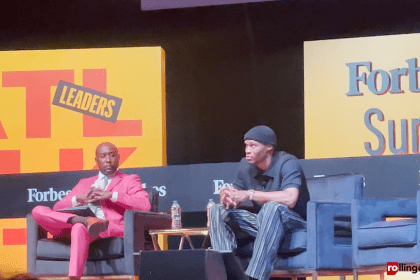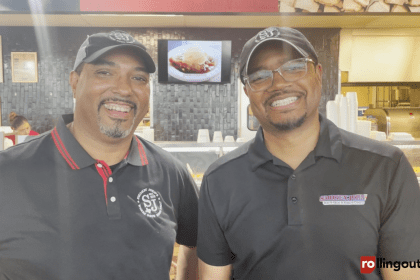Susan Simmons-Stevenson is the founder and CEO of The Lifecycle Network, which focuses on recruiting clients and candidates within multiple industry sectors across the United States. Simmons-Stevenson is creating workforce solutions for their clients’ companies and job opportunities for their candidates.
Through her experience becoming an entrepreneur and starting her business, Simmons-Stevenson has the essential tips and tricks to help anyone build their company or platform the right way to be successful in the future and the present.
Simmons-Stevenson spoke with rolling out about being an entrepreneur and The Lifecycle Network.
How did you become an entrepreneur?
When I started [researching starting] a business, it wasn’t “entrepreneurship.” [At] the time, [I] wanted to own my own business. It wasn’t taking the word entrepreneurship and applying it [as] I do today. It was what I did on my own that could generate revenue. Being the person that I was, I knew that I could do it well because I was doing it for someone else, but then putting forth the effort, putting forth hard work, and determination to know that if I’m doing something for myself, I have to give 110%. It’s one where being that person that everybody was reaching out to, for any little thing, so that to me was your value adds somewhere for someone, and applying that into my business into my life. That’s how I [got] started.
What steps are people missing on their way to starting a business and becoming an entrepreneur?
When individuals think about entrepreneurship, they jump out there, and they do it. One of the things that I did when I thought about starting my own business [was work] for the company while I was pursuing my own goals as a business owner. We missed [that] because no one teaches us that entrepreneurship comes with ebbs and flows. Nobody talks to us about the fact that the cost it’s going to take to start a business and what it’s going to take to maintain a business. So at that point, when we jumped out into entrepreneurship, we see a quick influx, and you see a quicker decline. We don’t understand that you have to have some revenue coming in, whether it’s doing your own thing, and for me and my husband, he continued to work. [At the same time], I pursued entrepreneurship, and that level of support and that mindset of I just can’t quit and what is my backup plan, because you still have to get clients, you still have to put yourself in a position to generate revenue.
If you’re not a trust fund baby or someone is passing you some cash, you’ll quickly learn. This is not for the faint of heart. I advise anyone [stepping] out into entrepreneurship to create a plan for yourself. What is your strategic plan when it comes to your exit strategy if you’re in corporate America, as well as what is it that it’s going to take to sustain you until you get your business up and running?
What are you all doing at The Lifecycle Network to help employers and employees?
When you think about The Lifecycle Network, it is all about human resources and human capital. When you think about employers who have a need, ultimately, it’s helping the companies get to where they want to be, but at the end of the day, it’s helping individuals in our community get to where they need to be when it comes to their careers. The Lifecycle Network is bridging that gap between employer and employee [to] create an environment where individuals [receive] sustainable income, and we are helping companies create jobs. When we marry the two, it’s a win-win situation for the employer and the employee.

















